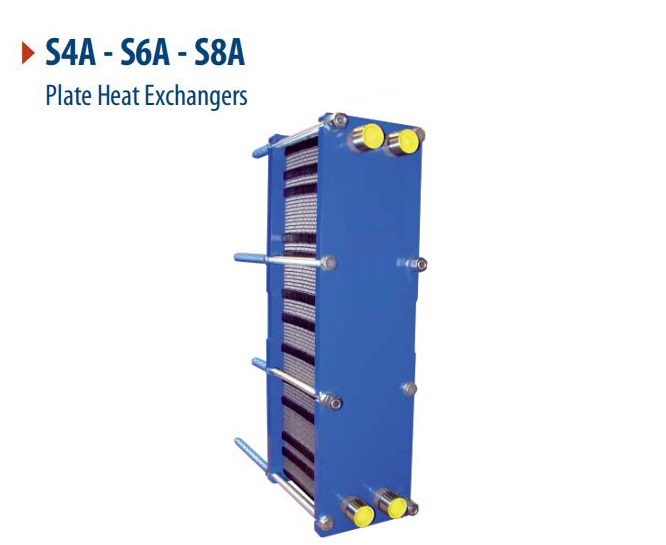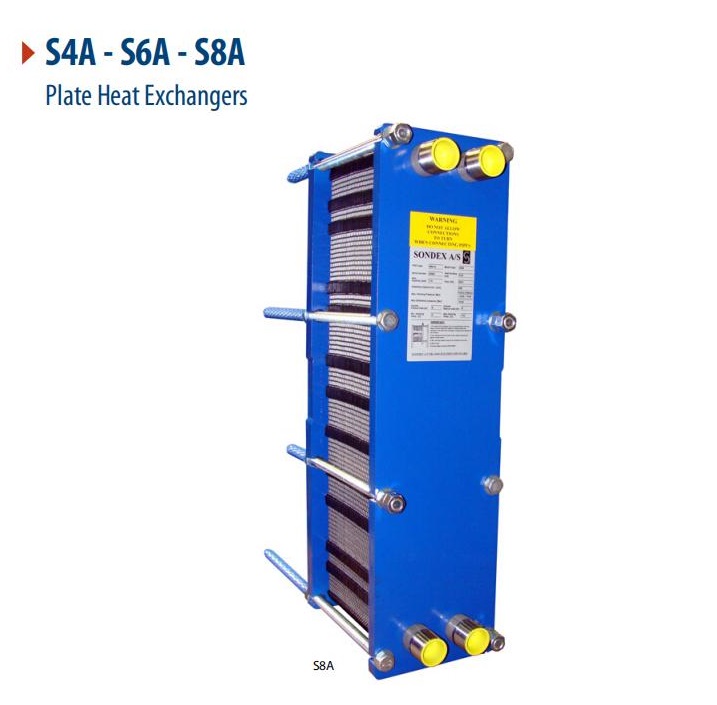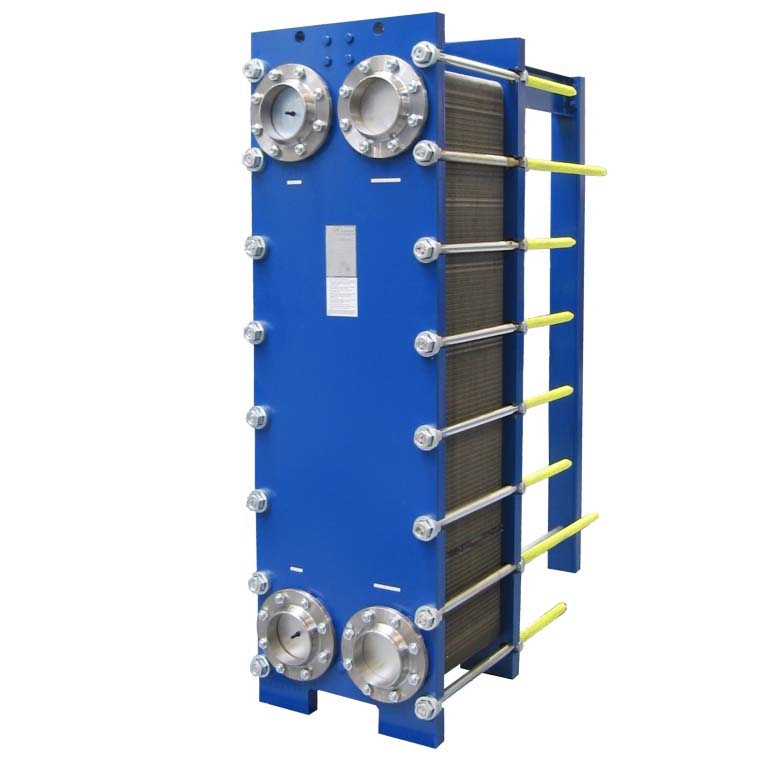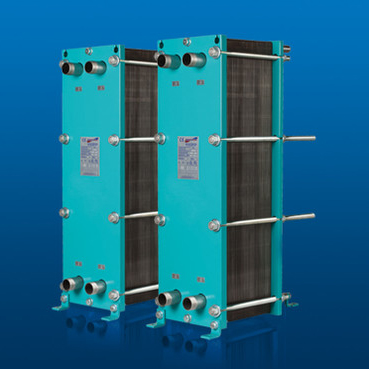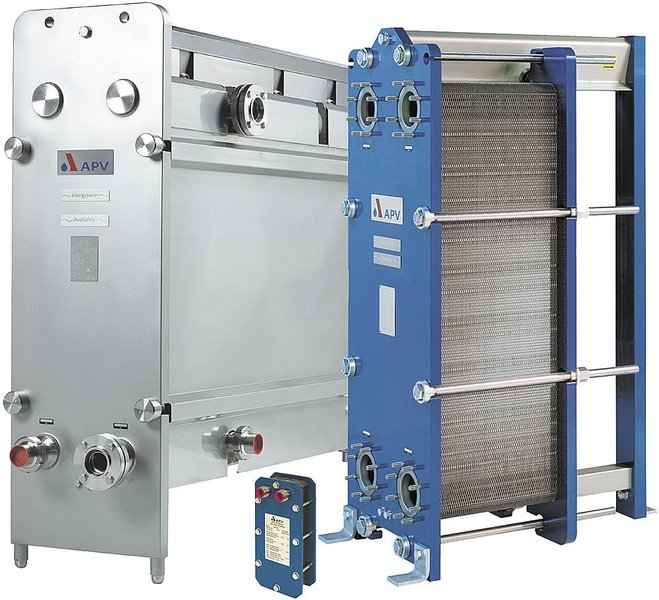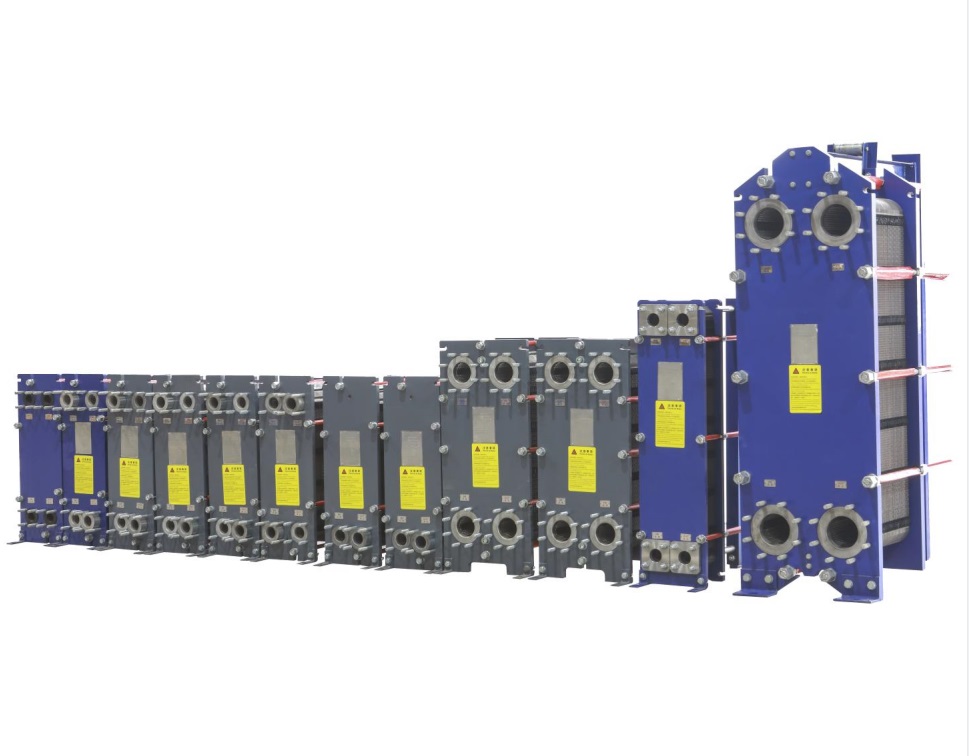Product Introduction
Sondex Plate Heat Exchanger equivalent completed machine
standard plate heat exchangers are the ideal choice for a wide range of applications across numerous market segments. Innovative technologies and smart design make our standard plate heat exchangers a stellar investment and the go-to choice for standard duties.We have one of the largest plate portfolios in the world and we customize each heat exchanger to meet your exact requirements. The versatile design and high thermal efficiency make them the perfect solution for a wide range of applications.
Features and benefits
- Experience the benefit of an individually customized solution that perfectly matches your requirements and lowers your energy consumption.
- High performance and a low pressure drop eliminate unnecessary burdens on your system and optimize overall system performance.
- We design single-pass solutions when possible, as they are the preferred choice for almost all duties. With all connections on the head you do not need to disconnect the heat exchanger from the piping to perform inspection, cleaning, or service.
- The design results in a compact solution with a small footprint, simple installation, and easy access for maintenance.
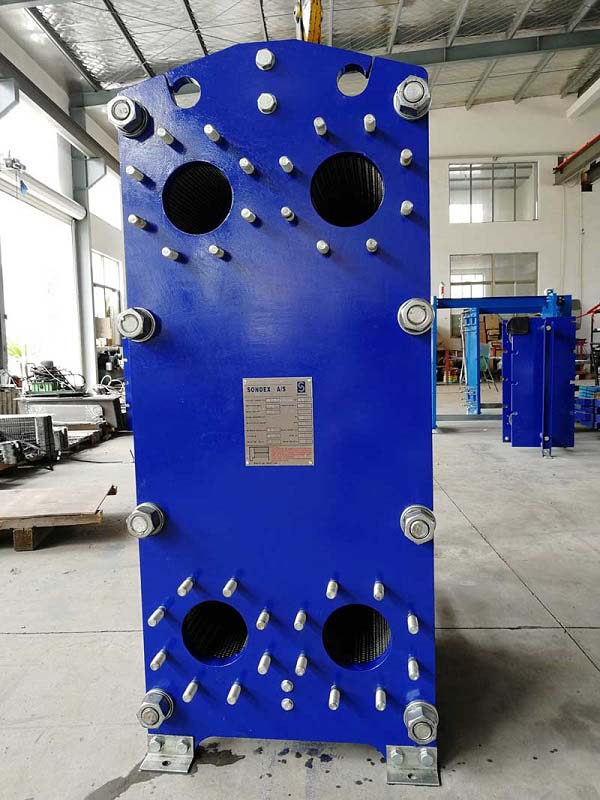
Technical specifications
- Conections from DN25 to DN600 (1" to 24")
- Frames designed according to FEA and PED 2014/68/EU (EN13445) and ASME sec VIII, Div. 1 construction standards
- Plate materials: AISI 304/316, titanium, SMO, Hastelloy*
- Gasket materials: EPDM-HT, NBR-HT, Viton*
- Plate lengths up to 5.5 m (18 ft)
- Flow rates up to 7,200 m3/h (31,700 gpm)
- Working pressure up to 35 bar (500 psi)
- Working temperatures from -20 °C to 180 °C (-4 °F to 356 °F)
*Other materials are available upon request.
Applications
- HVAC industry
- Marine/offshore industry
- Dairy/food/beverage industry
- Sugar industry
- Biogas industry
- Pulp and paper industry
- Heavy industry
- Mining industry
- Petrochemical industry
- Chemical industry
Detailed introdution about Sondex plate heat exchanger.
D-Sondex Plate Heat Exchanger Model
Detachable Sondex plate heat exchanger specification
Model
Connection
surface/plate
Plate QTY
QMAX
Surface max
DN
㎡
No.
T/H
㎡
D-S7
50
0.07
76
40
5
D-S14
50
0.15
427
40
59
D-S17
50/65
0.19
609
40
100
D-S18
50/62.5
0.19
609
65
115
D-S21
100
0.22
698
180
146
D-S22
100
0.26
538
165
118
D-S41
150
0.45
670
380
274
D-S42
150
0.46
532
360
223
D-S62
150
0.68
670
380
415
D-S43
200
0.46
695
700
300
D-S65
200
0.68
695
700
450
D-S100
200
1
695
700
695
D-S130
200
1.3
695
700
900
D-S80
300
0.8
930
1600
744
D-S81
300
0.84
930
1600
750
D-S120
300
1.2
930
1600
1115
D-S188
300
1.88
930
1600
1750
300
1.88
930
1600
2210
D-S250
300
2.51
930
1600
2334
D-S200
500
2.06
930
4000
1860
The Table are Sondex Commonly type Pressure Up to 2.5Mpa
Frame type:IS、IT、FT、IG、FS、FG、IC
The heat exchanger with the same angle hole size and width in the SONDEX series heat exchanger has 3-6 types of plates of different heights. Since the position of the corner hole and the aspect ratio of the plate heat exchanger affect the flow of fluids between the plates, it affects heat transfer. Sex, Therefore, SONDEX, a plate with different lengths and widths, meets the requirements of different thermal lengths. (Thermal length θ is the ratio of the temperature difference between the entrance and exit of a heat exchanger medium to the logarithmic average temperature difference of the heat exchanger medium under certain conditions, which is an important parameter of the ability to change the temperature of the heat exchanger.).
SONDEX also designed and produced twin
plates with exactly the same size, only the corrugated depth of the
plate, such as the S41 and S42 models SONDEX heat exchanger, with the
same shape and angle hole size, but the S41 heat exchanger has a width
of 5.4 mm. The S42 heat exchanger has a channel width of 6.9 mm. The
wide channel is more suitable for the uneven flow of fiber, particle or
high viscosity media and hot and cold media. Due to the wide and narrow
channel heat exchangers, SONDEX plate heat exchangers can be designed to
obtain the best inter-plate flow rate, thus achieving a good heat
transfer effect.
Rich tablets make it easy for SONDEX to
provide users with the best solution. For the same working conditions,
SONDEX plate heat exchanger has higher thermal efficiency. The heat
transfer area needed is more economical. This not only saves investment,
but also can easily obtain more reasonable inter-plate flow rate, which
reduces the corrosion and scaling speed of the plate, and extends the
service life of the planter heat exchanger.
Each model of ONDEX has been carefully designed and rigorously tested.
Each type of plate is divided into two
types: adult hard plate(TL) and villain soft plate(TK). The hard plate
has high heat transfer efficiency, high fluid resistance, low heat
transfer efficiency and low fluid resistance. The channel of plate heat
exchanger can be a single soft plate channel, a hard plate channel, and a
soft and hard plate channel can also be a mixture of the above
channels. The optimal design of heat exchanger is obtained by the
scientific ratio of channel.
The SONDEX plate heat exchangers all use
the same side flow, because the design of the guide area is used at the
entrance and exit of the plate, that is, the groove design of the
chocolate island-shaped area at the exit of the corner hole. Ordinary
linear guide slots play a uniform distribution role only for unilateral
fluids, and this chocolate island-shaped groove design can balance the
difference in flow resistance on each flow channel, so that the fluid on
both sides can be obtained in each part of the plate. The relatively
uniform fluid distribution state, Even the wider plate can evenly
distribute the fluid between the plates, which fundamentally improves
the traditional side-flow plate heat exchanger. Because the fluid
distribution state between the plates is different and the flow dead
angle causes the difference in the temperature distribution of the fluid
along the path. And then bring about the adverse effects of reduced
heat transfer efficiency; In addition, this part of the drainage area
also participates in heat transfer at the same time, which improves the
heat transfer area of the SONDEX plate heat exchanger;
Since the above chocolate island-shaped
guide area design ensures the uniform distribution of fluids between
plates, SONDEX adopts the same side-by-side diagonal flow form, making
it easier for users to take over.
The international advanced design and production process make SONDEX plate heat exchanger is the best value for money product.
All SONDEX plate heat exchangers worldwide
are made from 6 hydraulic presses at the Danish SONDEX plant, one of
which has a capacity of 20,000 T and is the largest hydraulic compressor
in Europe. It is specifically used to process large plates above DN400.
Due to the large capacity of the press and advanced stamping
technology, each SODNEX plate pressed is very flat and has no stress
deformation at all. The surface roughness of the stamping sheet is the
same as that of the original sheet, and it has a very high quality
uniformity. The SONDEX sheet is fully in line with the quality
requirements of the food hygiene board. The friction resistance of the
fluid is reduced, the scale is not easy to be scaled, and the point
erosion is not easy to occur, ensuring the stable and efficient
operation of the SONDEX heat transfer equipment.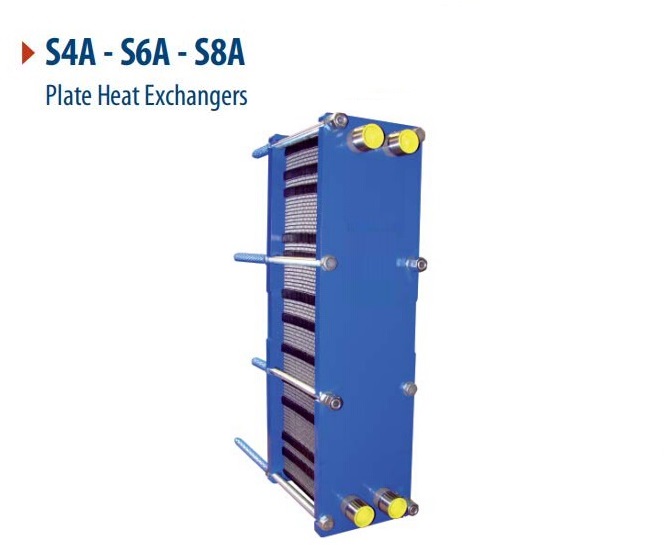
The difference of body distribution and
flow dead angle results in the difference of temperature distribution of
fluid along the course, which leads to the adverse effect of decreasing
heat transfer efficiency. In addition, this part of the drainage area
also participates in heat transfer at the same time, which improves the
heat transfer area of the SONDEX plate heat exchanger;
Since the above chocolate island-shaped
guide area design ensures the uniform distribution of fluids between
plates, SONDEX adopts the same side-by-side diagonal flow form, making
it easier for users to take over.
SONDEX plate heat exchanger adopts SONDER
LOCK buckle visco-free gasket as the main seal. Compared with adhesive
pads, non-adhesive pads have the advantages of easy installation and
disassembly, repeatable use, and long life. The buckle connection
designed by SONDEX is a row of protruding buckle structures that are
evenly distributed on the gasket to overfit the hole in the
corresponding position on the plate to ensure that the pad is not
detached from the plate installation or use. In contrast to the
suspension type visco-free gasket, the positioning part of the buckle
gasket is not in contact with the fluid in the heat exchanger, thus
preventing the positioning hook of the hanging gasket from being damaged
due to fluid contact and long-term erosion., It affects the sealing
ability. It can be said that the buttoning is the most advanced
structure in the visco-free mat. However, due to the need for accurate
coordination of the structure, a higher requirement is put forward for
the machining accuracy of the plate and the gasket, that is, the
position of all the small holes on the plate and all the buckles of the
gasket must be accurate, otherwise the deviation of any one position
will cause waste. The average manufacturer can not reduce the waste rate
and therefore does not want to adopt this structure.
SONDEX plate heat exchanger gaskets can be used according to the user's different needs, NBR, EPDM, SILON fluorine rubber, etc.. In addition, SONDEX has introduced EPDM HT gaskets and NBRHT gaskets that can withstand high temperatures. EPDM HT high-temperature gaskets can withstand high temperatures of 180 °C. The temperature resistance of plate heat exchanger is greatly improved.



